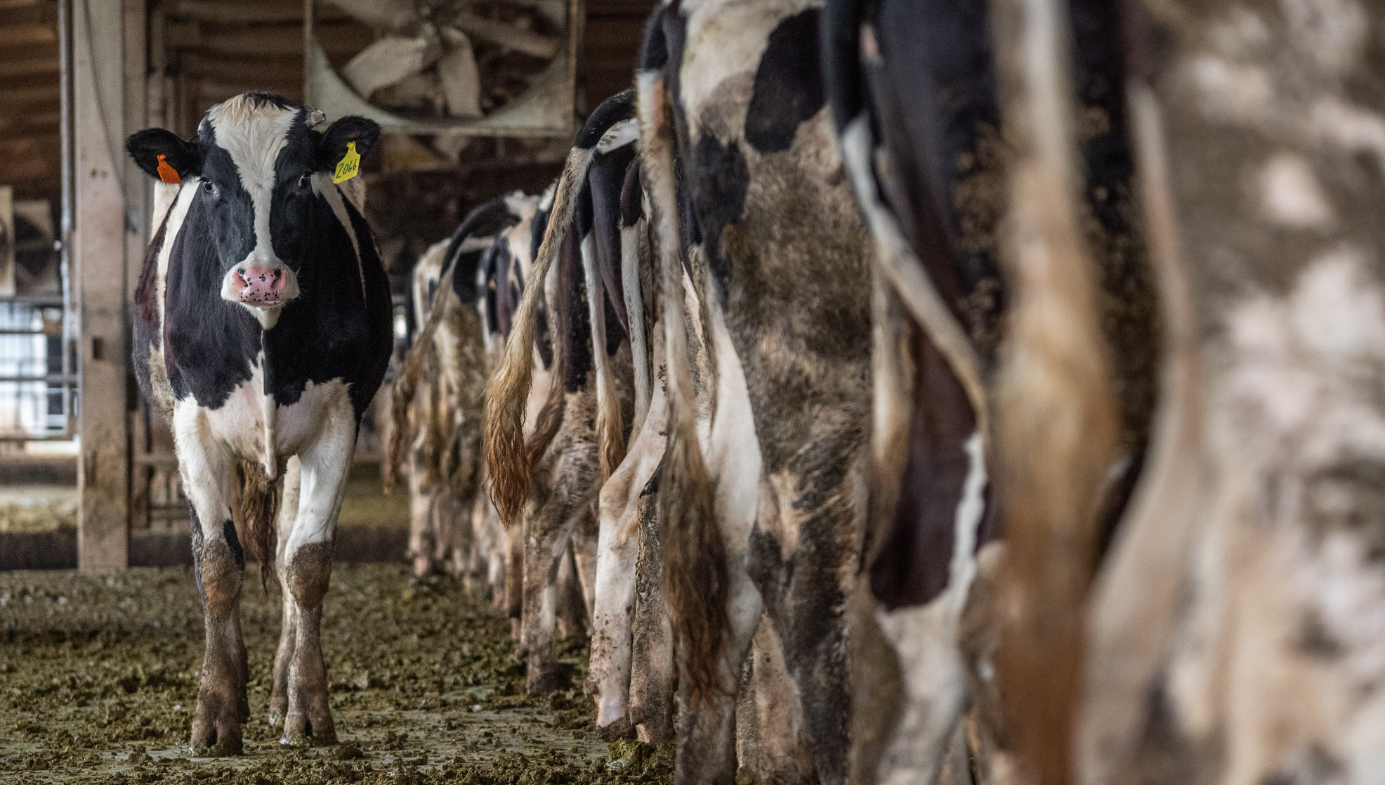Activism
What PETA Has Cost the Animal Rights Movement
In fact, the word “PETA” has become a pejorative for stunts, gimmicks, and putting feelings over facts when it comes to animal issues.

Animal advocates constantly complain about the reputation of People for the Ethical Treatment of Animals (PETA). They frequently see their cause dismissed because of the strong associations with this rambunctious organization. Earlier this month was no exception, as PETA made major headlines by asking the internet to stop using idioms like “bring home the bacon”:
In fact, the word “PETA” has become a pejorative for stunts, gimmicks, and putting feelings over facts when it comes to animal issues. I argue in my new book, The End of Animal Farming, that animal rights will succeed in building a food system where we eat meat, dairy, and eggs without the use of animals, but it’s a tragic irony that one of the biggest obstacles for activists might be the bad reputation of its best-known advocates.
I should clarify. This isn’t to say PETA hasn’t done a lot of good. The first modern undercover investigation of farmed animal abuse was conducted by the pioneering organization in 1983 at a Texas horse exporter, shortly after PETA’s famous lab animal investigation in Silver Spring, Maryland, in 1981. More food-industry investigations followed in 1991, when PETA investigated a cow slaughterhouse, a pig slaughterhouse, and a chicken hatchery.
These investigations started receiving major media attention in the late 1990s. A 1998 PETA investigation of a pig-breeding farm led to the first-ever felony indictments for cruelty to farmed animals. It “revealed shocking, systematic cruelty from daily beatings of pregnant sows with a wrench and an iron pole to skinning pigs alive and sawing off a conscious animal’s legs.”
PETA’s McCruelty campaign against McDonald’s in 1999 and 2000 led to one of the first major corporate commitments to reducing farmed animal suffering, and it helped catapult farmed animal welfare into public discourse. These achievements have been instrumental to the inception and rapid growth of companies that produce animal-free food like Impossible Burgers and cultured meat (meat grown from animal cells without animal slaughter, also known as clean meat or lab-grown meat).
But much of the early momentum to help farmed animals seems to have resulted from the growing number of passionate, talented animal advocates who don’t work for PETA. If this one organization never existed, other advocates were on track to pick up the animal rights flag and build a movement without such reputational burdens. PETA’s counterfactual impact wasn’t an ignition of the animal rights movement, but instead the heavy focus on gimmicks like “sex sells” advocacy—sexualized images of women on billboards, leaflets, commercials, etc. used to promote veganism or animal rights.
PETA has attempted to defend these tactics by noting the large amount of attention they garner and pointing out that the women themselves—nonprofit staff, volunteers, and celebrities—willingly choose to participate. Unfortunately, neither of these arguments mitigates the devastating effect these tactics have had on the reputation of the animal rights movement. Animal issues are frequently dismissed as antagonistic, immature, or trivial compared to human issues. The extra eyeballs gimmicks pull onto animal rights messages couldn’t be worth such a high cost.
Of course, not all of this is attributable to PETA. People are inevitably defensive in the face of a new social problem, especially one that almost everyone actively participates in like factory farming—over 99 percent of U.S. farmed animals live on factory farms. But in my opinion, enough of the dismissiveness seems to be attributable to PETA that the attention their tactics have brought to the issue has not been worth the reputational cost. And this to say nothing of the direct harm caused to other social struggles, such as PETA’s “Save the Whales” and other body-shaming campaigns, and oversimplified comparisons between animal cruelty and historical atrocities such as slavery and the Holocaust.
Antagonizing other movements and dismissing other people’s struggles for the sake of controversy just to to get attention is not the kind of tactic that has taken other social movements mainstream. Not all publicity is good publicity.
Virtually all American adults have now seen undercover investigations exposing cruelty to animals used for food, research, and entertainment, but the animal rights movement is struggling to create change. Advocates needs to change government and corporate policies, and to shift the attitudes and behavior of society as a whole.
This is why reputational costs to the movement are so undercutting: When campaigners ask Fortune 500 companies to reform their policies, negative public perceptions of the animal rights issue are a major bottleneck. Food advocates often focus on sustainability and health arguments for meat reduction and reform, since animal rights has a weaker reputation, despite how much Americans love animals. It’s just not seen as a serious social issue.
In fact, I would argue that the voracity of PETA and similar groups—their pursuit of attention above all else—has been one of the two biggest mistakes of the animal rights movement to date.

The other mistake is a heavy focus on individual consumer change: Advocates have conflated helping animals with going vegan (or vegetarian), when there are very promising institutional solutions like policy change that don’t rely on one-by-one vegan conversion. A stunning 47 percent of U.S. adults say they “support a ban on slaughterhouses,” even though only a tiny fraction of them are willing to go vegan themselves. A whopping 32 percent of Americans believe “animals deserve the exact same rights as people to be free from harm and exploitation,” and only 3 percent believe “animals don’t need much protection.” It’s no surprise that, at heart, America is a nation of animal lovers.
Individual-focused strategies, like converting people to plant-based lifestyles, fail to capitalize on this strong support. Instead, they provoke defensiveness and backlash by portraying the everyday consumer as the enemy. Moreover, both the gimmicks and individual focus in the animal rights movement lack historical precedent; virtually no successful social movement has succeeded with these tactics, so why do activists rely on them so heavily?
Fortunately, the animal rights movement is moving in a new direction. Take for example the new prioritization of food technology. Investors, entrepreneurs, and scientists who care about animals are driving the development of cultured meat. This tech innovation is painting the movement with a more modern, sophisticated reputation. Advocates are also focusing more and more on applying data and evidence with the mindset of “effective altruism” to ensure their work does as much good as possible.
The future of the animal rights movement is bright, but it needs PETA to move on from their gimmicks and harmful publicity stunts. If PETA fails to evolve, other advocates need to push ahead, distancing themselves from its gimmicks and forging a new perception of animal rights as an urgent and serious social issue.






